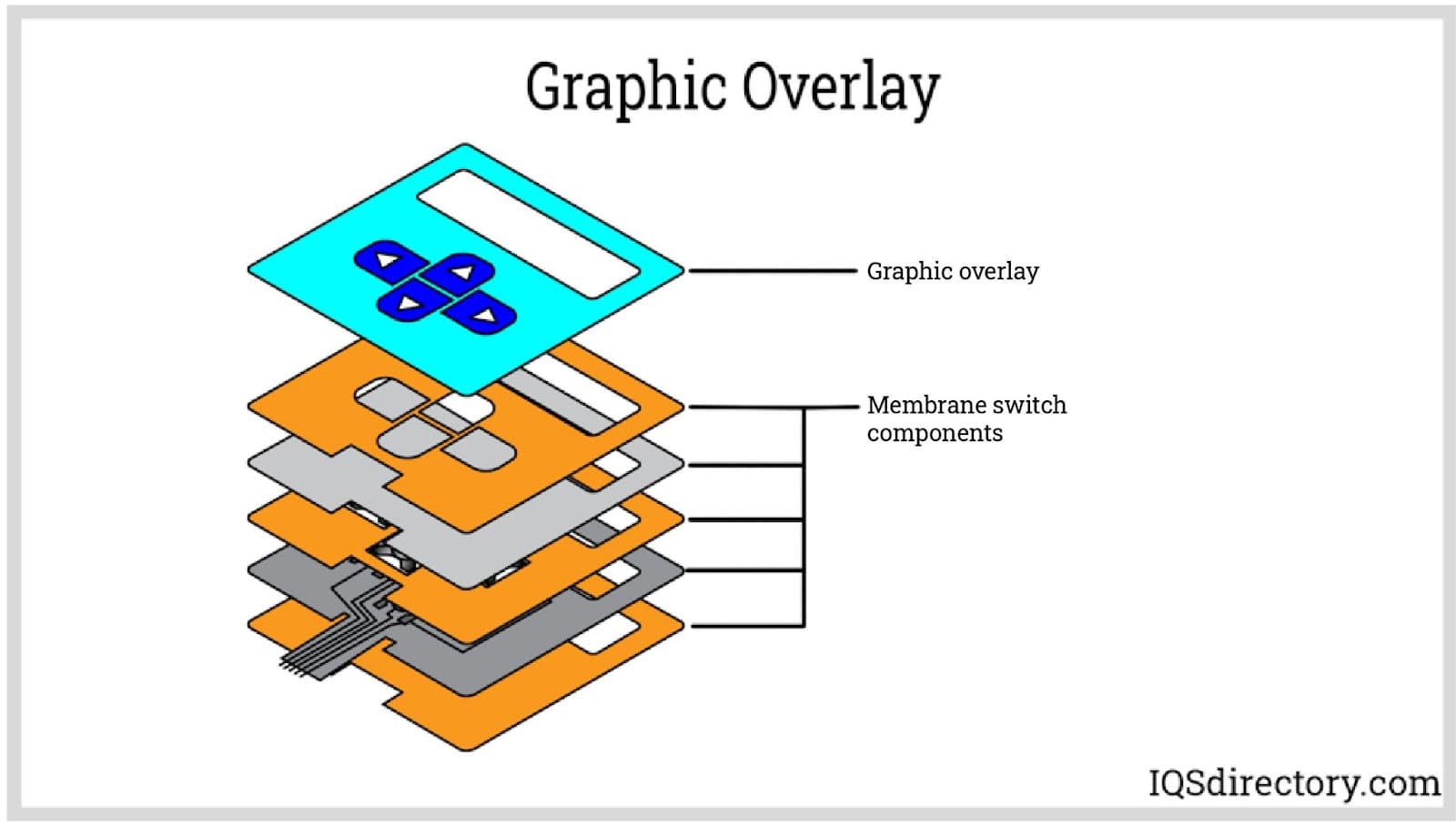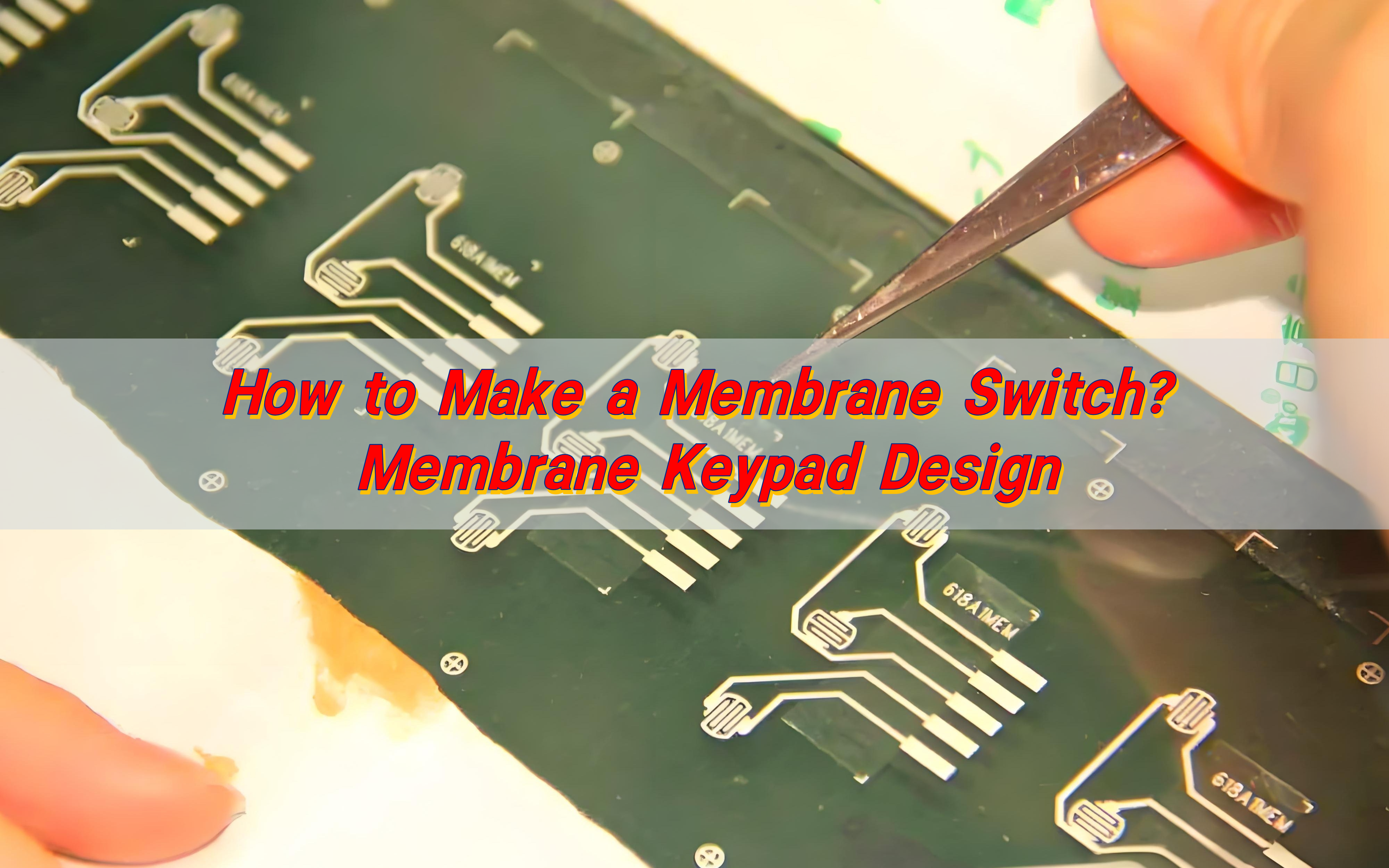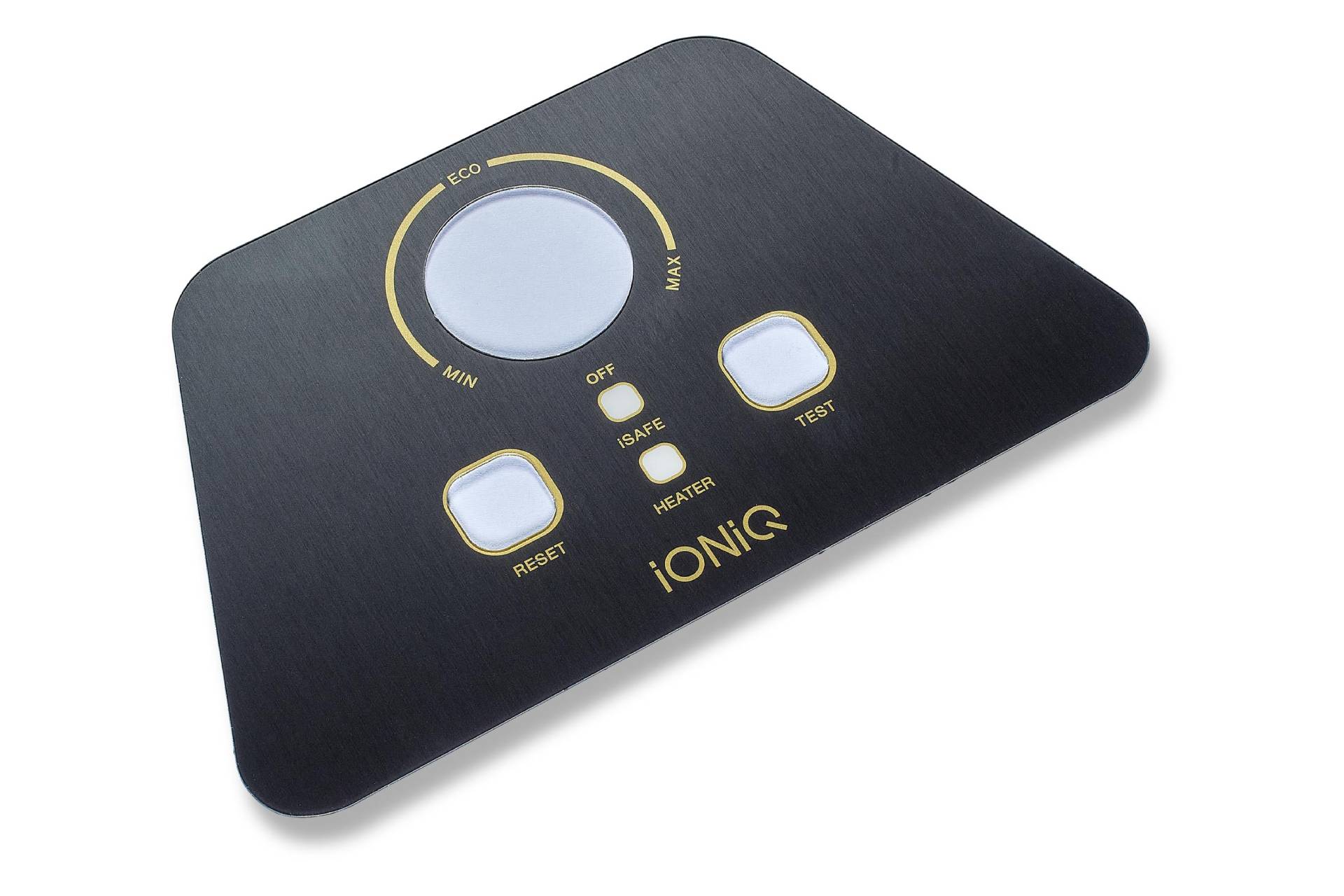Trusted Membrane Switch Manufacturer for Custom Electronic Interfaces
Trusted Membrane Switch Manufacturer for Custom Electronic Interfaces
Blog Article
Recognizing the Importance of Membrane Switch in Modern Electronics and Their Applications
Membrane switches over act as a vital part in modern electronic devices, using a reliable interface for individual interaction. Their adjustable and lightweight nature makes them suitable for a variety of applications across varied industries. Comprehending their essential parts and benefits can give understandings right into their expanding relevance. As innovation proceeds to development, the evolution of Membrane switches over elevates concerns concerning their future applications and design innovations. What lies ahead in this vibrant area?

What Are Membrane Buttons?
Membrane switches are vital components in modern-day electronics, acting as interface that assist in communication between individuals and devices. These switches are composed of a number of layers, consisting of a graphic overlay, a glue layer, and a circuit layer, every one of which job with each other to develop a practical and long lasting user interface. The style permits a level, low-profile option that can be tailored concerning size, form, and aesthetic look, making them suitable for different applications, from consumer electronics to clinical devices. The tactile responses given by Membrane switches over improves customer experience, while their resistance to dirt and dampness makes them optimal for testing atmospheres. In addition, Membrane buttons can include features such as backlighting and published graphics, even more broadening their usability. Their adaptability and robustness make them a favored choice in sectors where reliability and ease of use are paramount, inevitably adding to the seamless operation of modern electronic devices.
Key Elements of Membrane Switches Over
While numerous components contribute to the capability of a membrane button, 3 key layers play substantial duties in its layout and procedure. The top layer, commonly made from a sturdy polymer, offers as the user interface for individual interaction, frequently including printed icons and graphics. Underneath this is the spacer layer, which preserves the needed range in between the top layer and the circuit layer. This spacer layer warranties that the button triggers just when pressed, avoiding unintentional inputs. The circuit layer contains conductive traces that finish the electrical circuit when the leading layer is depressed. These traces can be made from different products, consisting of copper or silver. With each other, these parts create a robust and dependable gadget that is compact and flexible, suitable for a wide variety of digital applications, from house appliances to clinical devices. Recognizing these key parts is essential for appreciating the general functionality of Membrane switches.
Advantages of Using Membrane Switches

Membrane Switch Production Process
Comprehending the Membrane button manufacturing process discloses the complex actions associated with producing these essential parts. The procedure commonly starts with the design phase, where requirements and designs are created utilizing specialized software application. Following this, the graphic overlay is published on a flexible substratum, typically making use of high-resolution printing methods to assure clearness and precision.Next, the adhesive layers are applied, which serve to bond the various elements with each other. The circuit layers, made from conductive inks or materials, are then published onto a different substrate. These layers are meticulously lined up and laminated flooring to develop a practical switch.After setting up, the switches undergo evaluating to verify performance and toughness. Quality control actions are executed throughout the process to determine and remedy any issues. The finished Membrane buttons are packaged and prepared for distribution, ready to fulfill the demands of contemporary digital applications.
Applications of Membrane Changes in Various Industries
Membrane switches are progressively used throughout numerous industries, especially in medical equipment and consumer electronics. In the clinical area, they provide trusted control user interfaces for tools that require specific procedure. Similarly, in consumer electronics, these switches enhance user interaction by offering streamlined and responsive user interfaces.
Medical Devices Control
Countless modern clinical gadgets use Membrane switches for structured procedure and boosted customer interaction. These buttons provide a reliable, sturdy user interface for a selection of applications, consisting of diagnostic equipment, patient monitoring systems, and medical instruments. Their customizable layouts enable for particular formats that can accommodate the unique demands of healthcare specialists, guaranteeing intuitive navigating and effective access to crucial features. Furthermore, Membrane switches are resistant to pollutants, making them ideal for sterile atmospheres. The responsive feedback they offer can enhance user self-confidence, minimizing the danger of errors during vital clinical procedures. On the whole, the combination of Membrane switches in clinical devices substantially adds to boosted functional performance and client safety in medical care settings.
Customer Electronic Devices Interfaces
In the domain name of customer electronic devices, Membrane switches play a crucial function in improving customer interfaces throughout a variety of gadgets. These buttons are integral to items such as push-button controls, microwaves, and video gaming consoles, offering a straightforward and effective user interface. Their style permits a seamless integration of graphics and capability, allowing manufacturers to create streamlined, contemporary looks without jeopardizing functionality. Membrane switches are additionally recognized for their durability, frequently enduring comprehensive use and exposure to different environmental problems. Furthermore, they can integrate features like backlighting and tactile comments, further enhancing the individual experience. As customer demands check out here for sophisticated yet user-friendly user interfaces expand, Membrane switches over continue to be a vital part beforehand electronic tool capability.
Design Considerations for Membrane Switches Over
Designing effective Membrane switches over requires careful focus to numerous aspects that affect both functionality and individual experience. One essential factor to consider is the choice of i loved this products, as they can affect toughness, responsive responses, and aesthetic charm. Choosing an ideal adhesive is important for ensuring lasting adhesion and resistance to environmental factors.In enhancement, the format and style of the switch need to accommodate individual interaction, with switch sizes and spacing maximized for simplicity of use. The unification of graphics and labeling must prioritize quality and visibility under different illumination conditions.Consideration of electric attributes, such as actuation pressure and button sensitivity, will certainly enhance the responsiveness of the Membrane switch. Moreover, the design ought to accommodate manufacturing procedures to guarantee cost-effectiveness and timely production. Overall, a well-balanced design improves both the individual and the functionality experience of Membrane buttons in contemporary electronics.

Future Fads in Membrane Switch Modern Technology
As technology remains to evolve, Membrane buttons are poised to integrate brand-new advancements that will certainly improve their capability and application in numerous areas. One substantial pattern is the unification of adaptable and resilient products, which will raise the life expectancy and integrity of these buttons. Boosted surface appearances and customizable graphics are likewise prepared for, permitting more instinctive user interfaces.Moreover, the combination of wise modern technology, such as touch-sensitive surfaces and haptic comments, is expected to enhance customer interaction, making Membrane switches over extra responsive and interesting. In addition, developments in printed electronics will allow much more complicated wiring within thinner profiles, better increasing layout possibilities.Sustainability will also play an important role in future advancements, as manufacturers explore environmentally friendly materials and production procedures. Overall, these fads will certainly ensure that Membrane switches continue to be crucial and pertinent in a significantly electronic and interconnected world.
Often Asked Inquiries
Exactly How Do Membrane Switches Over Compare to Traditional Mechanical Buttons?
Membrane changes offer advantages over typical mechanical buttons, including minimized dimension, lighter weight, and boosted durability. They typically provide a sealed surface, boosting resistance to dust and wetness, making them perfect for diverse applications.
What Products Are Commonly Utilized in Membrane Switch Construction?

Can Membrane Switches Over Withstand Extreme Environmental Issues?
Membrane switches can stand up to extreme ecological conditions, depending on their style and products. High-quality constructions frequently include durability against temperature fluctuations, humidity, and direct exposure to chemicals, making them appropriate for numerous requiring applications throughout sectors.
How Long Do Membrane Switches Over Normally Last Prior To Failing?
Membrane switches generally exhibit a lifespan varying from 1 more to 10 million actuations, depending upon aspects such as use regularity, environmental problems, and producing high quality. Normal maintenance can prolong their durability and functional reliability substantially.
Are Membrane Changes Personalized for Particular Applications?
Membrane buttons are indeed adjustable for certain applications. They can be customized in dimension, style, and capability, enabling makers to fulfill distinct customer demands and boost product aesthetic appeals while preserving operational efficiency and resilience. Membrane buttons are vital elements in contemporary electronics, serving as customer interfaces that facilitate interaction between devices and users. The responsive comments offered by Membrane switches enhances user experience, while their resistance to dust and moisture makes them excellent for testing settings. The unification of graphics and labeling should focus on quality and presence under various illumination conditions.Consideration of electrical features, such as actuation pressure and switch sensitivity, will certainly improve the responsiveness of the Membrane button. Boosted surface area appearances and adjustable graphics are likewise prepared for, enabling for more user-friendly user interfaces.Moreover, the assimilation of clever technology, such as touch-sensitive surfaces and haptic feedback, is anticipated to boost individual interaction, making Membrane changes more receptive and engaging. Membrane changes deal advantages over typical mechanical buttons, consisting of reduced size, lighter weight, and improved durability.
Report this page